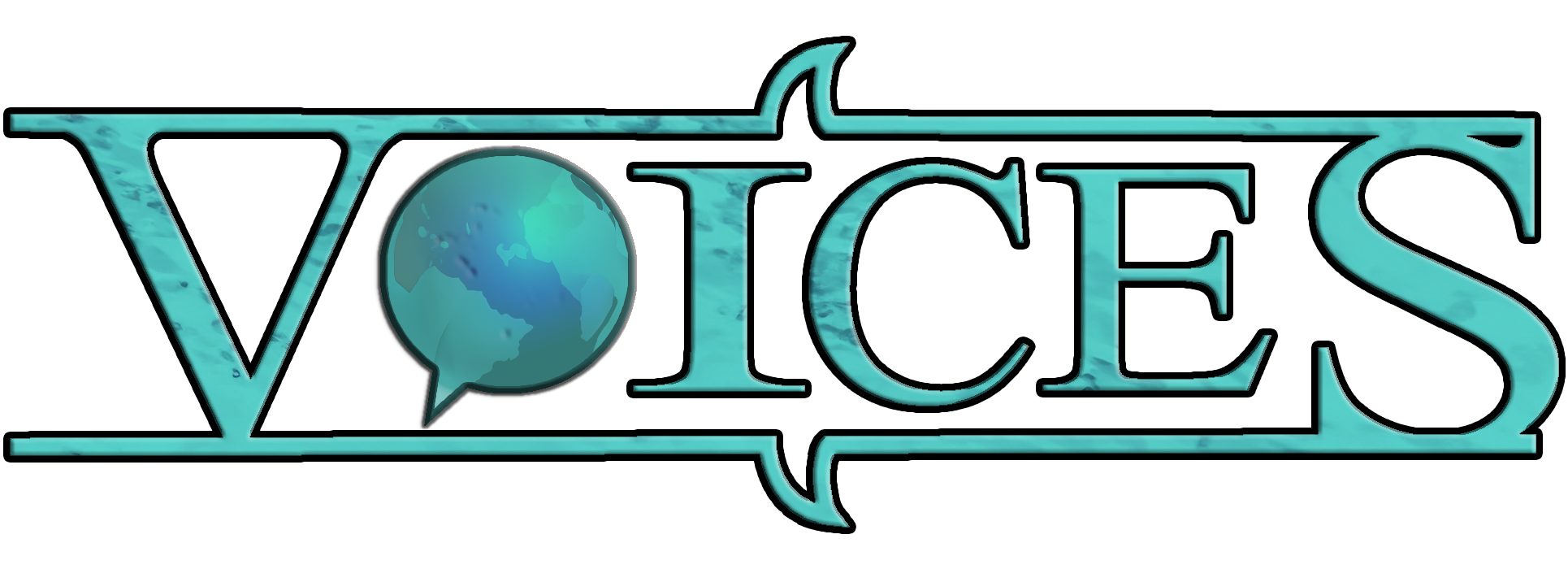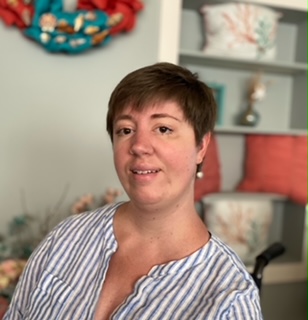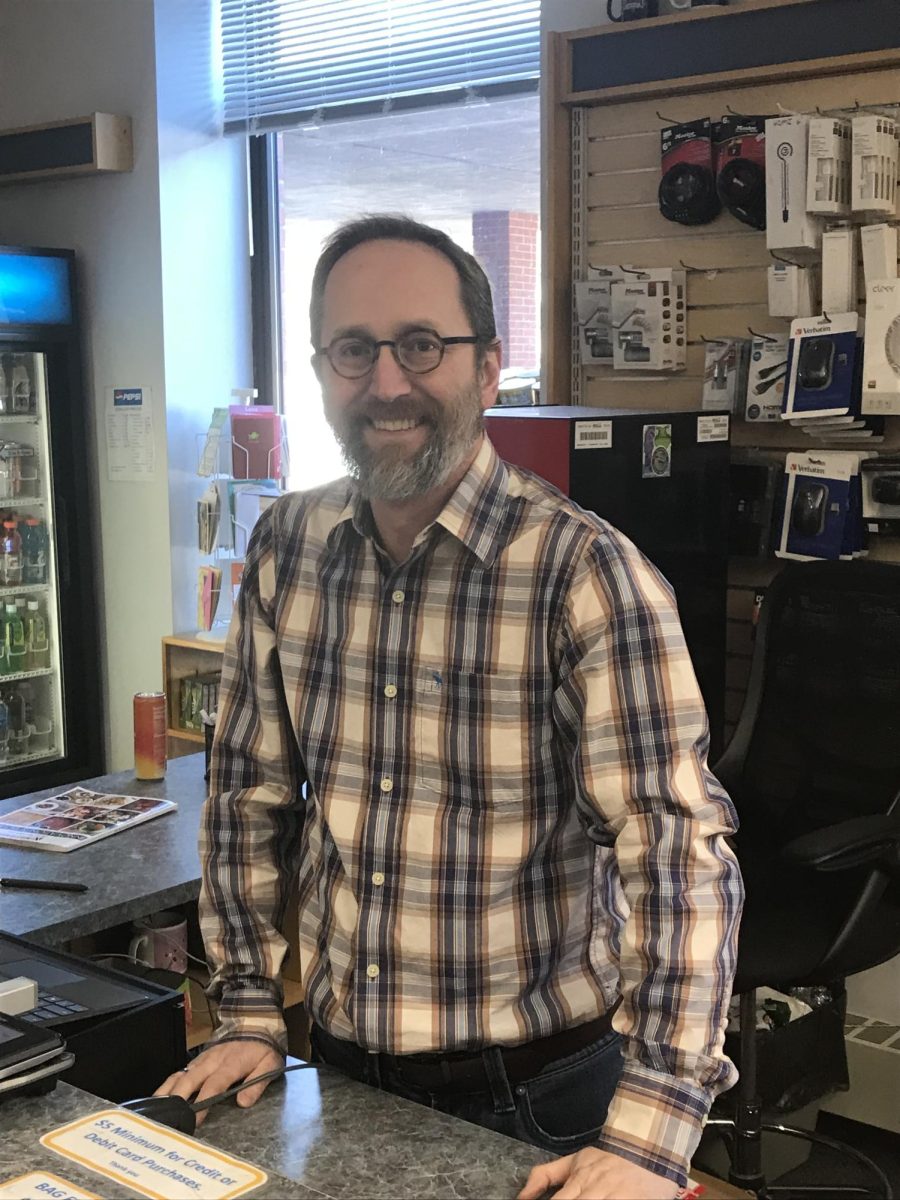Dr. Katie Roquemore works at Landmark College, a unique institution with a lot going on. Landmark is a small college which explicitly welcomes students who “learn differently,” a term used in place of terms like “disabled”. The college’s goal once included the mandate to prepare students who learn differently for transfer to other colleges and universities, but their aims have pivoted in recent years to seeking to provide students with a more complete education. In house- Katie Roquemore is on the front line of such transitions.
Dr. Roquemore went from teaching mandatory, creditless classes, to Chair of the Core Education Department where she helped influence policy to abolish such classes- a meteoric rise and equivalent impact for someone so new to the institution. It is only a taste of the way she applies her own experiences to the task of leadership. Despite having joined Landmark faculty only a few years ago, Katie has earned every accolade she bears, as well as the respect of her colleagues and her students.
I have come to advisors, to professors, and to administration looking for help and advice on matters ranging from accessibility, to student advocacy, to malfeasance, and when they don’t know what to do, I so often encounter a thoughtful exclamation and aside of- Oh! Do you know Katie Roquemore? She’s a professor here. You should talk to her about this. She knows this stuff.
And she does. I chose to write this profile on Katie as a leader, because when I talk to her I come away with good advice, solutions, and most importantly- a sense of having been understood. She’s on the side of the people she’s leading.
As a prominent member of the new waves of faculty hires made in the wake of losing a significant portion of its advisors and professors over the past several years (in some cases, compensating for the loss of what are nearly entire departments), Katie’s work is cut out for her. There is, I have commonly found, a clear distinction between people who have long-since adjusted to Landmark’s distinctly-adapted manner of functioning, and people who are coming from more typical institutions. Katie cuts right through that line, forging an immediate connection with students and professors alike.
Similar dichotomies of perspective are found in the fact that Katie arrived at Landmark shortly after the English Department was merged with First Year Studies to form the Core Education Department. Katie’s job is in no small part, to bridge the gap between these perspectives within and without the Core Education Department. To encourage change, to elicit functionality and effectiveness without also letting go of the more benign insights and practices Landmark has picked up from teaching disabled students for many years, is no easy task.
It’s not one that can be brute-forced; Katie relies on her strength in skills such as empathy and understanding to build cohesion between the perspectives of writing and education faculty, and between students, faculty, and staff.
But Katie Roquemore does more than just fix; she creates, she improves. Pursuing research studies, new policies and approaches, and having a hand sculpting departmental culture and procedure are all fundamentally creative and not merely restorative in nature. What’s being built at Landmark has no mirror out in the world, no exact copy from which to crib answers. Every semester’s student body is a new challenge for Landmark, and when things are done right, each semester is a new victory, a new set of breakthroughs.
Dr. Roquemore’s role in leadership long predates her time at Landmark- she cites having been a Service-learning leader while teaching at the high school level. Service-learning is an approach to education which entwines the goals of a curriculum with the interests of one’s community. Through service-learning, we find ways to improve and develop our community through service while engaging in the educational aspects and rewards of the process. Katie is someone who wants to have a part in the world around her growing, becoming better- and she seeks out leadership roles that will allow her to do just that.
Dr. Roquemore knows the impact that poor leadership can have- a lack of transparency amongst leadership can lead to a sense of isolation and discouragement. A lack of support or a failure to express gratitude to one’s subordinates can be similarly harmful. She names her PhD supervisor as a decidedly good leader who influenced her style- he was understanding, accommodating, and knew when to give slack and how to refrain from putting undue pressure and stress on others. Approachability and openness are distinct from total, unproductive honesty. They require a judicial and compassionate approach.
Katie Roquemore’s role as a leader is not without personal challenges. Being open as a leader isn’t a merely passive or receptive act- it requires choosing to enter challenging situations, to risk and brave confrontation and disagreement in order that openness can prevail. One must also be open about their own position, their own values, and must be seen defending them. Openness is not just being a good listener- it means being courageous enough to let others know your opinions without demanding that they recognize them as right. Despite struggling with having the resolve to broach necessary conflict, Katie knows to lean on mentors, to rely on the experience of others to help her own experience grow.
Bringing contemporary, widely-accepted practices and perspectives on education, providing vision and direction for this new era of Landmark’s existence, and mediating between the needs of both students and faculty isn’t an easy job, but it’s getting done by people just like Dr. Katie Roquemore.



